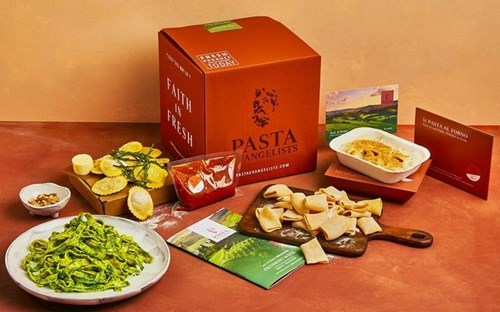Food Direct to Consumer: What Will Market Maturity Look Like?
Barilla's decision to acquire Pasta Evangelists may appear timely in terms of another UK lockdown: the direct-to-consumer pasta recipe box company managed to triple its sales in 2020 alone. It also plays into longer term changes in how we shop for food that long preceded the current pandemic. Indeed, 29% of UK adults had already bought groceries online by 2019.
However, the economics of such businesses may not always be immediately attractive. According to their Companies House filings, Pasta Evangalists had already accumulated £4.2m in net losses by May last year alone. Severe losses can only be justified on the presumption that growth will continue and it will bring scale and profitability. Such assumptions may be particularly daunting to food investors in light of a competitive context which is evolving to include scaled grocers and technology players seeking to enter food.
When clients ask us about the wisdom of investing behind direct-to-consumer opportunities, our advice quite rightly is that "it depends" - on the specific category, on the particular market, and on their risk appetite. Long-term trends and new inventions alone cannot deliver attractive returns - as investors in the late 1990s technology crash painfully discovered. Alternatively, delayed decision-making in the search for clarity has also been a recipe for disaster. Instead, proactive decision-making grounded in a sophisticated understanding of market development scenarios and enduring sources of competitive advantage is the best way forward.
Time will tell whether the choice to acquire Pasta Evangalists was profitable. One thing is for sure though: the Marakon team's taste buds approve!
Link: https://www.foodbev.com/news/barilla-acquires-fresh-pasta-recipe-box-firm-pasta-evangelists/
